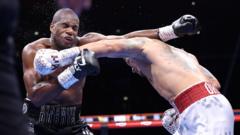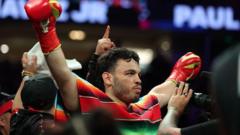In a historic bout that took place in 1974, George Foreman squared off against Muhammad Ali in Zaire, an event that transcended mere sports. Foreman, known for his aggressive fighting style and strength, faced off against Ali, a master of psychological warfare and the "rope-a-dope" strategy. The match, dubbed the “Rumble in the Jungle,” was promoted not just as a boxing contest but as a cultural phenomenon that captivated the world.
Zaire’s president, Mobutu Sese Seko, seized the opportunity to showcase his nation to a global audience, hoping to alter its international image from that of a troubled state to an emerging power. The buildup to the fight was filled with provocative statements, notably from Ali, who claimed he would cook his doubters, an assertion that drew ire from local authorities concerned about reputational damage. Despite the tensions, this audacious promotion generated immense interest and set the stage for a fight that would have widespread implications.
When the bout commenced, Ali’s genius in the ring became clear as he outmaneuvered Foreman, ultimately delivering an astonishing eighth-round knockout. This victory not only solidified Ali’s legendary status but also marked a turning point in Foreman's life and career, leading him to subsequent reinvention beyond boxing.
As we remember George Foreman, his legacy is intricately tied to this pivotal moment in sports history, reflecting on how a single fight influenced cultural narratives and individual trajectories.

















